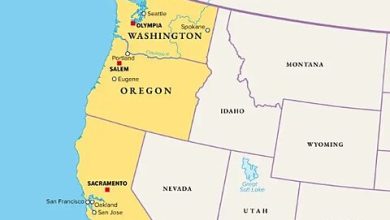State Officials Can’t Appoint Federal Officers in Gulf Coast Fishing Case

Thomas A. Berry and Alexander Khoury
Over the past several decades, many small‐boat, family‐owned fishing operations along the Gulf Coast have shut down due to excessive regulation. Ironically, these fishing communities were regulated out of existence by the very rulemaking body meant to ensure their longevity.
Fishing regulations for the Gulf region are developed and proposed by the Gulf of Mexico Fisheries Management Council. The Gulf Council is composed of 22 voting members. Eleven of these members are nominated by governors of Gulf states in sets of three, from which the secretary of commerce must select one so long as the three nominees are statutorily qualified.
Because the members of the Council possess significant regulatory authority, they are officers of the United States who must be appointed pursuant to the Constitution’s Appointments Clause. The Appointments Clause sets out two modes of appointment: Principal officers must be appointed via nomination by the president and confirmation by the Senate, but Congress may choose to vest the appointment of inferior officers in the president alone, a department head, or a court of law.
In early 2023, multiple gulf fishing operations sued to challenge a rule that slashed their catch limits on a certain type of fish by 80 percent. They argued, among other claims, that the rule was void because the members of the Council were not appointed as the Constitution requires.
But the district court upheld the rule, concluding (among other things) that the eleven governor‐nominated members were validly appointed as inferior officers. The court held that the members were appointed by the commerce secretary (a head of a department) and that Congress has more leeway to narrow down an appointer’s choices when the office being filled is inferior.
The fishers have now appealed to the Fifth Circuit, and Cato has filed an amicus brief supporting them. In our brief, we argue that the district court erred in two important ways.
First, the district court wrongly concluded that the Appointments Clause allows Congress to greatly restrict the freedom of choice for appointers of inferior officers. The Appointments Clause allows Congress to vest the appointment of inferior officers in one of three entities, and Congress has full discretion to choose which of those three is best. But the clause does not allow Congress to place limits on how appointers may exercise their appointment power, outside of Congress’s authority to create office qualifications. Limiting an appointer’s choice to only three options is unconstitutional, especially when that limitation comes via a nomination scheme rather than via office qualifications.
Second, our brief argues that the district court erred by approving a scheme in which state governors select nominees for Council members. As demonstrated by the Supreme Court’s decision in Buckley v. Valeo (1976), only constitutionally valid appointers may play a role in choosing officers of the United States. State governors are not mentioned in the Appointments Clause and thus are not valid participants in the process.
Finally, our brief argues that the Supreme Court’s decision in United States v. Hartwell (1868) does not change the outcome of this case. Hartwell concerned a unique officer structure that bears little resemblance to the Gulf Council’s appointment scheme.
The district court’s decision should be reversed and the appointments of the eleven council members discussed in our brief should be found unconstitutional, even if they may be appointed as inferior officers.





